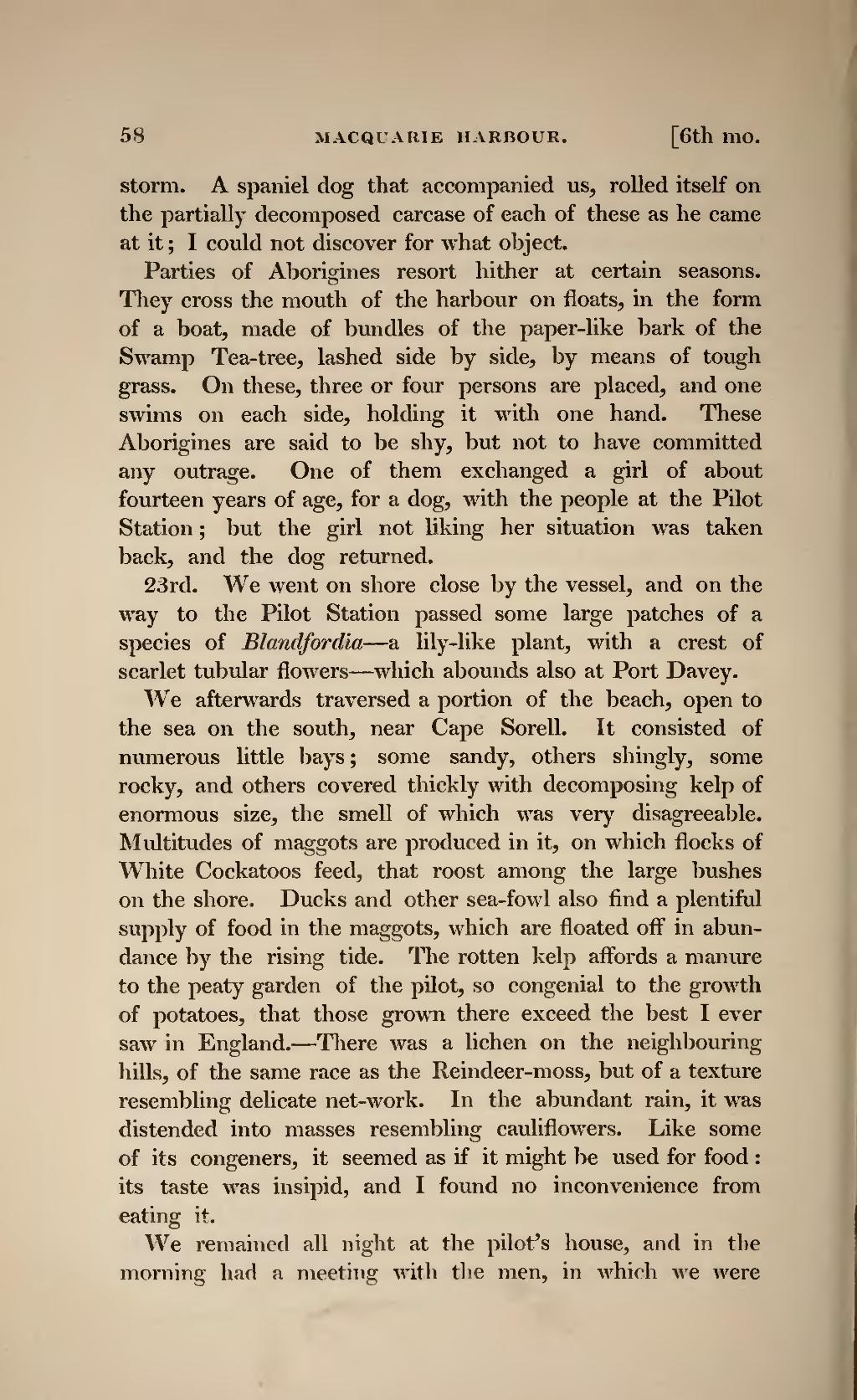storm. A spaniel dog that accompanied us, rolled itself on the partially decomposed carcase of each of these as he came at it; I could not discover for what object.
Parties of Aborigines resort hither at certain seasons. They cross the mouth of the harbour on floats, in the form of a boat, made of bundles of the paper-like bark of the Swamp Tea-tree, lashed side by side, by means of tough grass. On these, three or four persons are placed, and one swims on each side, holding it with one hand. These Aborigines are said to be shy, but not to have committed any outrage. One of them exchanged a girl of about fourteen years of age, for a dog, with the people at the Pilot Station; but the girl not liking her situation was taken back, and the dog returned.
23rd. We went on shore close by the vessel, and on the way to the Pilot Station passed some large patches of a species of Blandfordia—a lily-like plant, with a crest of scarlet tubular flowers—which abounds also at Port Davey.
We afterwards traversed a portion of the beach, open to the sea on the south, near Cape Sorell. It consisted of numerous little bays; some sandy, others shingly, some rocky, and others covered thickly with decomposing kelp of enormous size, the smell of which was very disagreeable. Multitudes of maggots are produced in it, on which flocks of White Cockatoos feed, that roost among the large bushes on the shore. Ducks and other sea-fowl also find a plentiful supply of food in the maggots, which are floated off in abundance by the rising tide. The rotten kelp affords a manure to the peaty garden of the pilot, so congenial to the growth of potatoes, that those grown there exceed the best I ever saw in England.—There was a lichen on the neighbouring hills, of the same race as the Reindeer-moss, but of a texture resembling delicate net-work. In the abundant rain, it was distended into masses resembling cauliflowers. Like some of its congeners, it seemed as if it might be used for food: its taste was insipid, and I found no inconvenience from eating it.
We remained all night at the pilot's house, and in the morning had a meeting with the men, in which we were
